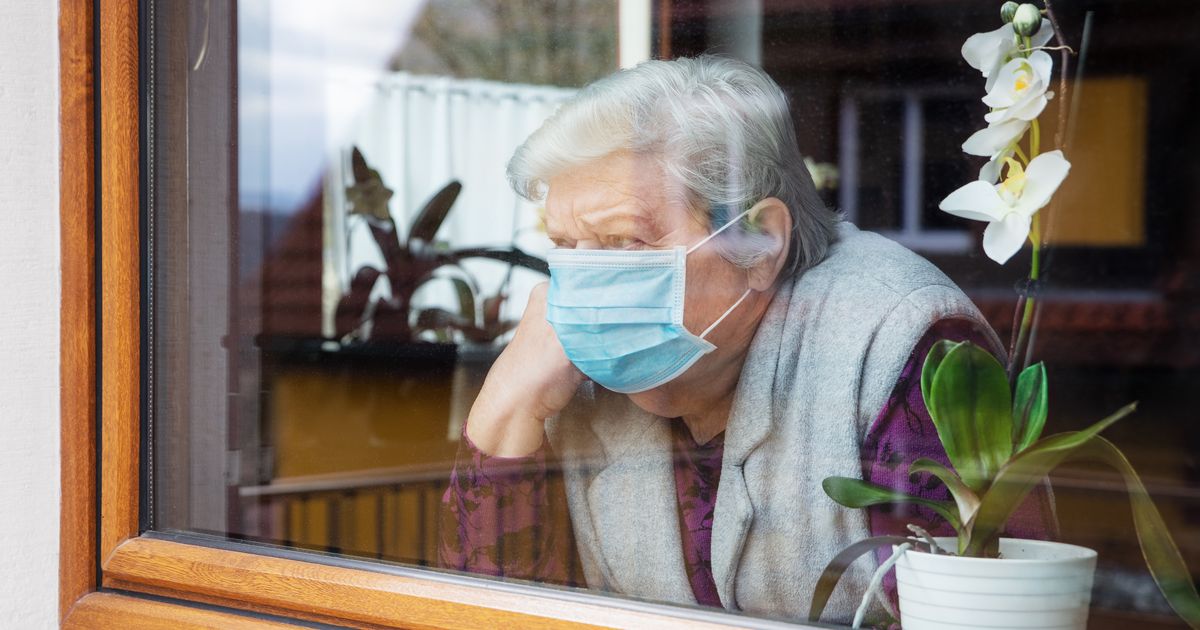COVID-19 is a pneumonia-like disease that was first discovered in Wuhan, China. The disease is caused by a new coronavirus, named SARS-CoV-2, that is similar to the Severe Acute Respiratory Syndrome (SARS) virus.
For the seniors, the probability of contracting the Covid-19 virus is very high. The risk for severe illness from COVID-19 also increases with age, since older adults are at highest risk. Severe illness means that the person with COVID-19 may require hospitalization, intensive care, or a ventilator to help them breathe, or they may even die. However, there are other factors that can increase your risk for severe illness, such as having underlying medical conditions. By understanding the factors that put you at an increased risk, you can make decisions about what kind of precautions to take in your daily life. One of the major precautions that can be taken to reduce the risk of contracting the virus is Social Isolation.
As coronavirus cases rise all over the world, it can be hard for the seniors to see any end to the need for social isolation and the loneliness that can come with it. Since the pandemic broke out, the seniors have been following public health advice to reduce their risk of exposure by staying at home, knowing an infection can have life-threatening complications. But shielding at home has also meant staying detached from family, friends and the places that kept them active and engaged.
Unwittingly, the COVID-19 safety guidelines to self-isolate have created new health risks by leaving many older adults even more socially isolated and inactive than before. These social isolation and loneliness will surely pose detrimental effects on the seniors’ physical and mental health.
HOW DETRIMENTAL CAN SOCIAL ISOLATION BE TO THE SENIORS’ HEALTH?
Before the pandemic began at all, national studies showed that nearly a quarter of seniors in America were socially isolated and about one-third of middle-aged and older adults experienced loneliness. Reduced social engagements and feeling isolated have been associated with numerous health-related conditions, including chronic diseases and psychiatric disorders. Social distancing during the pandemic was never meant to hamper social relationships, but many family members, friends and neighbors of many seniors are staying away to avoid exposing their loved ones to the virus. While that protects the seniors from some health risks, the limited physical interactions reduce feelings of connectedness with others. It can also worsen other health risks.
Without frequent and meaningful social engagements and stimulation, the seniors’ cognitive functioning can be impaired. Seniors are also more susceptible to depression, anxiety, and even suicidal thoughts as the days of isolation go by. Staying at home for long also hinders the seniors from engaging in healthy lifestyles, including physical activity and eating well. Inactiveness without exercise can weaken the muscles and this can make the seniors vulnerable to falling. Inactiveness can also lead to unplanned weight gain and other health problems, including declining heart and lung capacity. Since the seniors are to stay at home, their access to healthy food too is hindered. This is another threat to their health conditions as healthy food is also necessary for staying healthy and for preventing and managing chronic conditions.
TIPS FOR THE SENIORS TO STAY HEALTHY DURING COVID-19
Here are some steps the seniors, their families and caregivers can take to help keep the seniors stay active and engaged despite social isolation during covid-19:
-
PLAN YOUR DAY
Staying at home all day long can be boring and frustrating. To avoid such, you should keep up with daily routines like getting out of bed, getting dressed and being engaged with some activities within the limit of your strength. Activities such as cooking, gardening, reading, participating in some online classes, calls with friends, or home repairs can give meaning to the days. In a case where the senior have mobility challenges, their families and caregivers can help them with their daily routines.
In as much as the seniors have to stay indoors, family members and caregivers should help them maintain a healthy diet and good eating habits. You should plan and prepare healthy meals for them. Their meal should contain the right proportion of nutrients needed to improve or manage their health conditions. A poor diet can lead to poor health conditions. Therefore, caregivers should make sure their loved ones eat rightly. Families and caregivers should also ensure that their loved ones do not run out of medications, groceries and other food items. They should help their loved ones with their medications and shopping since the seniors have limited access to shopping and visiting the pharmacy.
-
HELP THEM STAY PHYSICALLY ACTIVE
Caregivers and families should help their loved ones engage in exercises that can be done at home or in the immediate neighborhood, like walking. There are also many virtual and online physical activity and health promotion programs, which can remotely help the seniors foster engagement and connection to others.
-
ACCEPT HELP FROM OTHERS
To make things easier for the seniors at this time, many individuals and organizations are working hard to help keep them socially connected. You should remain open to accepting the kindness and support from family members, friends, health care providers and social service agencies.
-
FOLLOW LAID DOWN GUIDELINES
In a case where the senior have to leave home, it should be done wisely. The new CDC guidelines emphasize what seniors can do to stay safe when leaving home. For example, when going outside, practice everyday preventive actions: Carry a cloth face covering, tissues and hand sanitizer; encourage others to wear cloth face coverings when out in public; and avoid close contact with others who are not wearing face masks to the extent possible. The guidelines should be followed perfectly.
-
STAY VIRTUALLY CONNECTED
The new technology offers the seniors all sorts of online options to talk with family and friends despite the social isolation. Phone calls and online platforms such as Zoom, Skype, Facebook and so on can help them safely connect with peers and professionals, as well as friends and family. Caregivers can help them achieve this with a quick tutorial especially when their loved ones do not have adequate knowledge about the different online platforms.
CONCLUSION
With the COVID-19 pandemic, the seniors are at higher risk than others in contracting the virus due to some factors associated with aging. Hence, the social isolation. Yet they need help and advice to stay healthy and to avoid the detrimental effects of social isolation. For them, staying healthy and safe should also mean staying socially connected while following public health recommendations with the help of their families and caregivers. Public health efforts to stop the spread of COVID-19 should also take into account the importance of social connectivity for maintaining the seniors’ physical and mental health.
REFERENCES
- https://theconversation.com/social-isolation-the-covid-19-pandemics-hidden-health-risk-for-older-adults-and-how-to-manage-it-141277


